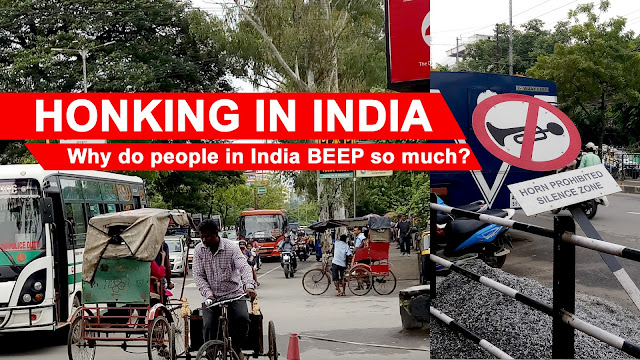
If you are from India there is a good chance that you might already be familiar with the honking habits of the motorists in India. But for the people who are from other countries where honking on the roads is not so common, it can drive you crazy. I have seen a lot of travel videos and read travel blogs about traveling to India. The most common topic in all these videos or blogs is how crazy are the roads of India, especially the honking habits of the motorists. For someone not accustomed to so much of honking, it is natural to be overwhelmed or to feel annoyed. I am from India, and I get annoyed when motorists on the road keep honking all the time. But the question is why honking in India so common or why do people in India beep so much?
THE REASONS:
I am not here to advocate the nasty habit of honking of Indian motorists but to throw some light on the facts that have made honking in India so common. The traffic in India is not organized, to be honest. No one follows lane according to the speed of their vehicle in India. The roads are narrow; the roads are mostly two-lane roads where cars, trucks, buses, motorcycles, bicycles, man/animal pulled rickshaws, electric rickshaws, three-wheeler autos, “thelas”, etc. all ply together. And to make matters worse there are animals, like dogs, cows, and goats also cross the streets. Some pedestrians will not walk on the footpaths instead will walk on the road and will not cross the road through a “zebra-crossing” instead will run in front of a vehicle at their will. Many people will not even bother to stop at a ‘red-light’. Most of the motorists do not use their rear-view mirrors to be aware of their surroundings. Many drivers have the habit of keeping the ORVMs folded and many motorcyclists tend to remove the rear-view mirrors to make their motorcycle look “cool”.
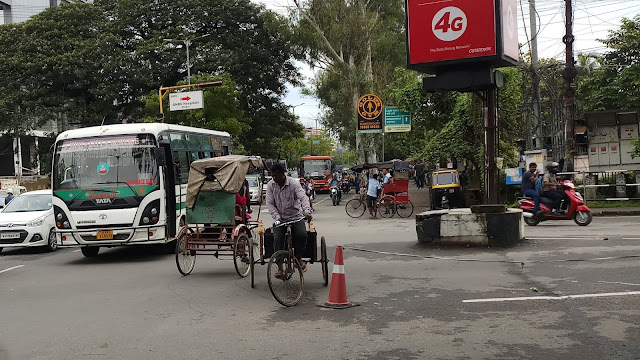
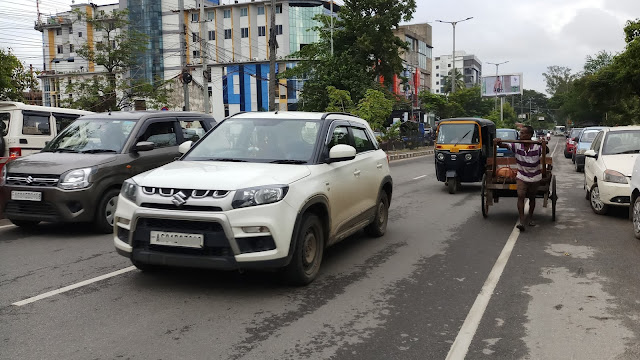
Most of the time the vehicles are hardly inches away from each other and you can easily collide with each other if you are not aware of the presence of another vehicle. And since most motorists do not use the ORVMs or the rear-view mirrors on their vehicle and tend to rely more on their ears than the eyes, how would you make them know about your presence? You Honk. Moreover, since no one follows the traffic rules or follows a lane on the roads, there is just too much happening around you. For instance, if you happen to see a vehicle on your right trying to overtake you and you decided to let him pass by changing the lane to the left, there is a good chance that there is vehicle somewhere on the left trying to overtake from the left. So, as soon as you change the lane the driver at your left will immediately honk to warn you about his/her presence. So, everything just happens in seconds.
Sometimes you might have noticed that motorist tend to honk at pedestrians walking or standing by the side of the road. This is because pedestrians too in India tend to be careless. They might not be aware of their surrounding or might be listening to music, texting, or might be looking in another direction. So, motorists are afraid to cross them without honking as they might cross the road without a signal which might lead to a fatal accident. And these types of accidents are very common on the streets of India.
Coming to the slow-moving vehicles like rickshaws and bicycles, in India, they are the worst as they will not care a bit to signal before changing the lane. And there are by-lanes everywhere; any vehicle might be driving out of these to the main roads. And it takes only one careless driver to cause an accident. And since people of India has become so accustomed to honking, they will not stop at junctions if you do not tend to honk at them.
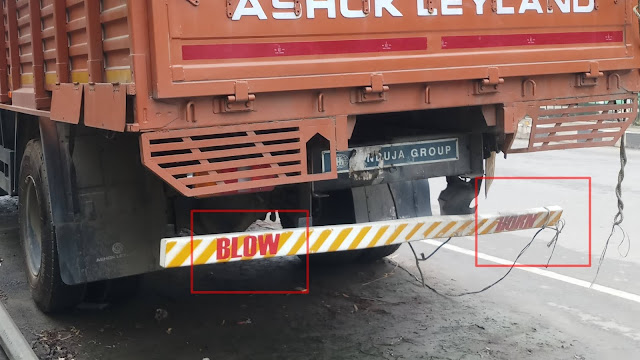
The horn has become a means of communication between motorists to motorists or between motorist to pedestrians on the road. This is mostly because they rely more on their ears than the eyes. But, this “means of communication” causes noise pollution and is one of the major cause of stress among people living in cities. Why does long drive in the mountains do not tire you as much as the short drives through city roads? It is because the traffic is low and almost no honking. So, how to reduce the amount of honking in India?
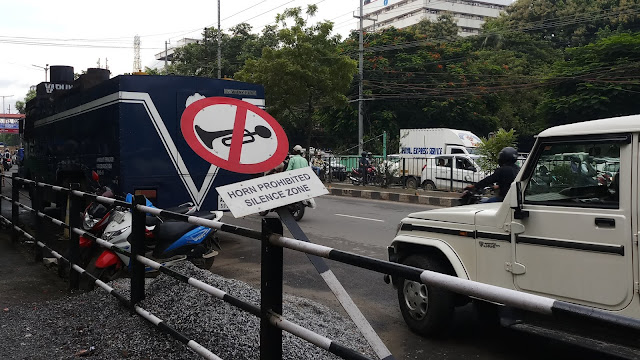
THE SOLUTION:
- Use mirrors on your vehicle to be aware of your surroundings.
- Do not overtake from the wrong side.
- Do not change lane without signal.
- Stop at junctions and check the oncoming traffic.
- Walk on the footpaths.
- Cross only through zebra crossings or footbridges.
- Stop at the red light.
- Do not park your vehicle such that it blocks other vehicles on the road.
- Slow-moving vehicles should drive on the left side of the road.
- Do not drive in the wrong direction.
- Do not indulge in road rage.
- Flash headlight to signal pedestrians or other motorists.
There might be many other ways to reduce honking. If you have any suggestions or any point that you might want to add, feel free to drop it in the comment section.

